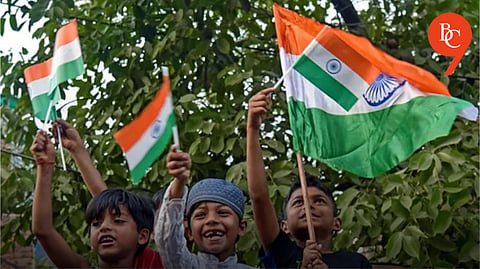

India has achieved a historic milestone on the global stage, emerging as the world’s fourth most equal society in terms of income distribution, according to the latest World Bank report. With a Gini Index of 25.5, India now ranks just behind the Slovak Republic (24.1), Slovenia (24.3), and Belarus (24.4), and stands ahead of every G7 and G20 nation, as well as major economies like China (35.7) and the United States (41.8).
The Gini Index is a globally recognized metric for measuring income or wealth inequality within a country. A score of 0 represents perfect equality, while 100 signals absolute inequality. India’s score of 25.5 places it in the “moderately low” inequality bracket, and just a fraction away from joining the “low inequality” group—an extraordinary feat for a country of over 1.4 billion people.
India’s remarkable progress is attributed to a combination of robust economic growth and targeted social policies focused on poverty reduction and financial inclusion.
According to the World Bank’s Spring 2025 Poverty and Equity Brief, 171 million Indians exited extreme poverty between 2011 and 2023. The share of people living on less than $2.15 per day plummeted from 16.2% in 2011-12 to just 2.3% in 2022-23. Using the updated $3.00 per day threshold, India’s poverty rate now stands at 5.3%.
The Pradhan Mantri Jan Dhan Yojana has brought over 556.9 million Indians into the formal banking system, enabling direct benefit transfers and reducing leakages in welfare schemes.
More than 1.42 billion Aadhaar digital identities have been issued, streamlining the delivery of government benefits and subsidies. The DBT mechanism has resulted in cumulative savings of ₹3.48 trillion by reducing inefficiencies and ensuring benefits reach the intended recipients. The Ayushman Bharat scheme has provided health coverage to over 413.4 million people, including senior citizens, through a network of more than 32,000 hospitals.
India’s Gini Index improvement from 28.8 in 2011 to 25.5 in 2022 highlights a steady trend toward more equitable distribution of resources. In comparison, advanced economies like Germany (31.4), the UK (34.4), France (32.4), and Japan (32.9) lag behind India in income equality. Only 30 countries worldwide fall into the “moderately low” inequality category, and among large, diverse nations, India’s achievement is particularly notable.
